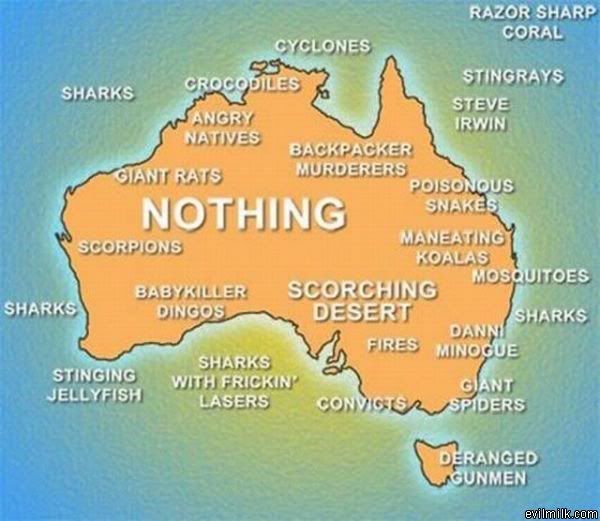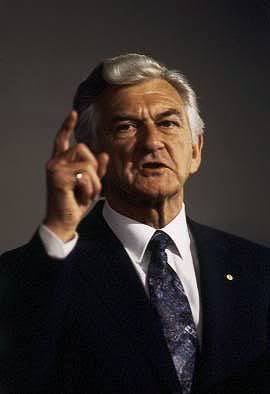Australia, it has been said, is the lucky country. Donald Horne meant lucky in the sense we had got where we are more by good luck than good management. Perhaps he is right but I am not entering that argument. However we got here, Australia, broadly speaking, is in a good place. When people get sick of governments, we get rid of them with a vote that the government initiates. We don’t have battles, airstrikes, suicide bombings, hunger strikes or any of the more extreme methods other countries have had to use to get rid of their governments. Our leaders don’t have private armies, nor do we lie awake at night dreading the knock on the door, hoping the footsteps continue up the stairs to our neighbour and not to us. We have a working democracy, rule of law, and freedom of worship, assembly and speech (up to a point). We have faults of course, but we also have the means and the will to fix them. Cecil Rhodes once said that to be an Englishman was to have won in the lottery of life. In the broad scheme of the modern world, being an Australian is something similar. And our weather is better.
People complain that Australian politics are dull. Thank God. Interesting politics are like the interesting times of the Chinese curse. That said, I think the complaint inaccurate. Readers of this blog will already know that I am neither disinterested or uninterested in politics. Nor do I claim not to be partisan. I’m a liberal conservative – or a conservative liberal. Or something else. I do think anyone who can describe their politics, or those with whom they disagree, in the one label – left-wing, right-wing, conservative, liberal or whatever – suffers from lack of imagination. Such labels are often handy but rarely accurate. I cannot think of anyone offhand whose views do not range across what we call the political spectrum; different issues, different circumstances, different times call for different responses. This is not hypocrisy but honesty and open-mindedness. Still they are useful shorthand, I must admit. And demonstrate below.
All this is a preamble to my response to Barrie Cassidy’s The Party Thieves: The real story of the 2010 election. Cassidy is best known these days as the host of Insiders, the nearest the ABC gets to a balanced look at politics. That the balance is usually represented by two left-leaning journos and one right-leaning journo gives you a fair idea of the ABC’s usual tilt at the concept. Cassidy however keeps a fairly tight grip on the tiller. Once Labor PM Bob Hawke’s Press Secretary, he is in interviews as keen to put the curly questions to Labor politicians as he is to Coalition politicians. Nor does he listen to noisier elements of the audience who demand this or that journalist never be allowed on the show again, usually starting their demand with “I’m all for freedom of speech, but…” (Just a tip: if you do use that phrase, you aint.) We need more journalists of Cassidy’s quality.
If you are at all interested in Australian politics, you should read this book. It is a good demonstration of Cassidy's virtues. As well as balanced, this book is eminently readable. The writing is clear and simple, while being entertaining and interesting. He writes the way he speaks, which is often the mark of a journalist (see Jeremy Clarkson’s work for the same effect.) He has real insight into politics and journalism, bringing years of experience in both fields to bear. And he is able to see the faults and strengths that both side of politics brought to the 2010 election.
Significantly, he doesn’t get to the 2010 election until halfway through the book. The first half is taken up with the story of the party thieves of the title: Malcolm Turnbull and Kevin Rudd. Cassidy sees both their ascensions to leadership as stealing the party from the rightful owners and both their downfalls had similar causes. Both stopped listening to the party and demanded their own way at all times. The big difference is, Liberals Party members still seem to like Turnbull and there may be a day when he becomes leader again. Meanwhile no matter how much Kevin Rudd woos the voters and flies about the world, he is so loathed by his party he has as much chance of being leader of the Labor Party as I do. The character of Kevin Rudd is, as Joseph Conrad said of the history of conquest of the world, not a pretty thing to look into too much.
Then of course there is the election itself, which no one party won, and finally Gillard managed to form government by gaining (or buying, depending on your view) the support of the Greens and a sufficient number of independents. In light of the election campaign and the consequent government we have, it is hard to disagree with Bob Hawke’s assessment that the Australian people generally get it right at elections, and 2010 was no exception. No-one deserved to win and no-one did. I was tickled to find some of Cassidy’s ideas of what went wrong and what went right occasionaly chimed with my own, while often finding correctives and illumination and information in areas of which I was unaware or misinformed or plain ignorant. Cassidy’s analysis is clearly-stated and well-argued.
It is also hard to argue with his conclusion that we as a people are hungry for a government that will do things because they are the right or best thing to do, not because a focus group liked it. The Hawke-Keating and Howard governments were of this type, which is why they both enjoyed long runs. I tend to agree with Henry David Thoreau – a government is best that governs least. But in the end they must govern, not try to keep on the right side of popularity polls at all times.



Buying. It's all about the buying.
ReplyDeleteYour blog is so much more grown up than mine and I'm five months older than you. Maybe I should write about more important things. Or stop cussing as much, anyway.